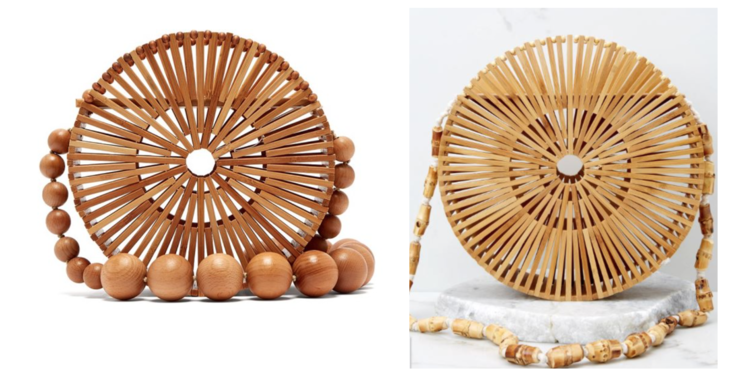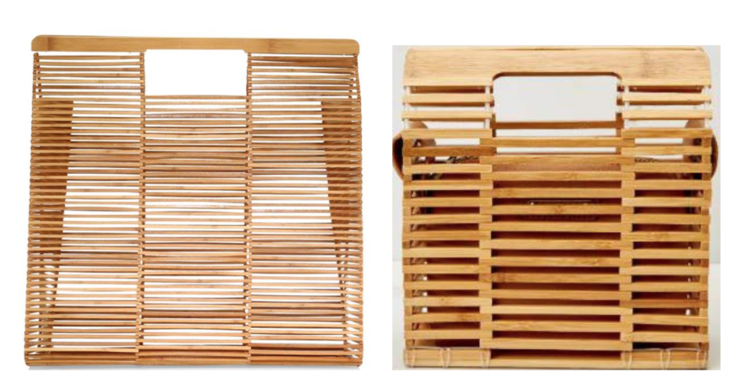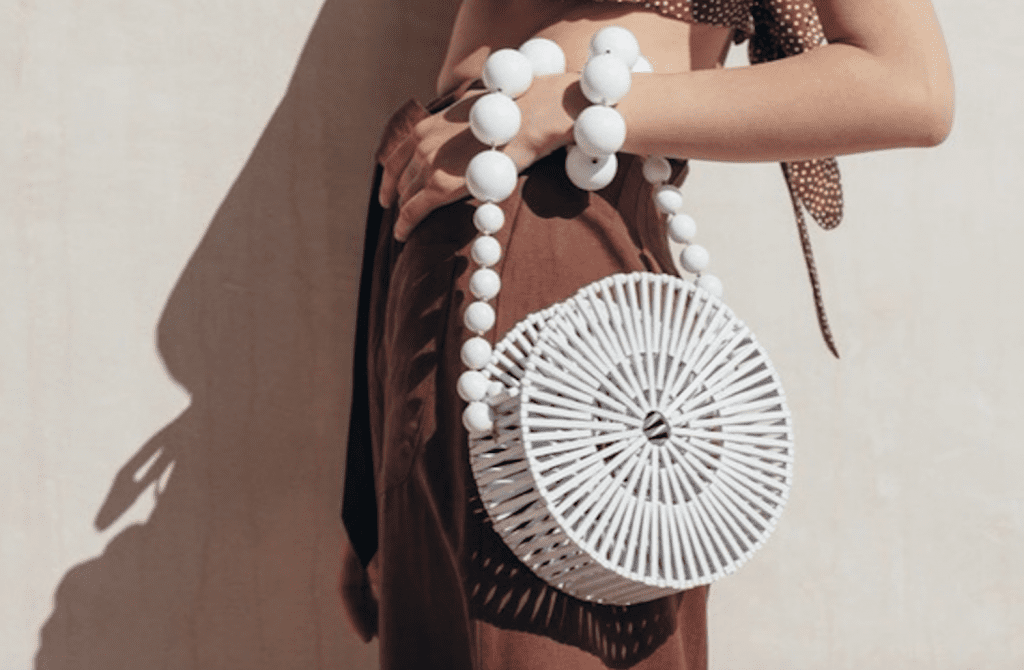Cult Gaia may still be fighting for a trademark registration for its Ark Bag after facing significant pushback from the U.S. Patent and Trademark Office over its arguably functional and “common” design, but that does not mean that the buzzy brand – whose accessories have dominated Instagram in recent years – is not aiming to cut down on copycat versions of its other bags. In a complaint filed in a California federal court on Wednesday, Cult Gaia claims that a Georgia-based boutique is “undercutting [its] competitive position and infringing [its] rights” by selling bags that are “virtually identical to” two of its popular designs.
According to its complaint, Los Angeles-based Cult Gaia claims that since 2012, “It has been creating beautiful and unique heirloom pieces of artistic clothing and accessories,” and now, “is an inimitable lifestyle brand that purveys an array of fashionable and artistic products, including high-quality handbags.” It is against this background and given the “widespread popularity and recognition” of its products, including the two design patent-protected handbags at issue, the Luna and the Big Natural, counsel for Cult Gaia argues that indie retailer Red Dress Boutique is on the hook for design patent infringement.
Primarily, Cult Gaia asserts that Athens, Georgia-based Red Dress is selling a handbag style that consists of “notable substantial similarities” to its own Luna bag design patent, “including the spacing, placement, and proportion of the wood top flap panel, appearance, spacing, placement, and proportion of the distinctive tri-level circular set of bamboo slats on the front and back, central circular cut-out motif present on the front and back, as well as the overall shape and proportion of the entire bag.”

This claim is a relatively straightforward one in that the body of Red Dress’ “Around Again Round Bamboo Purse” is “substantially the same” as Cult Gaia’s Instagram-saturated and design patent-protected Luna bag. The similarities are so striking, per Cult Gaia, that an “ordinary observer will perceive the overall appearance of these designs to be substantially the same,” which one of the core elements of the test for design patent infringement.
Counsel for Cult Gaia goes on to argue that Red Dress is selling another bag style, a small and a large version of a bamboo bag that it calls the “Getting it Together” bags, the “overall appearance of” which are “substantially the same as Cult Gaia’s patented Big Natural bag design.” Again Cult Gaia claims that “an ordinary observer will perceive the overall appearance of these designs to be substantially the same” as the design of its Big Natural bag.
Cult Gaia’s likelihood of success on this claim might be a bit different than it is for the previous bag. As design patent expert and University of Oklahoma College of Law professor Sarah Burstein tells TFL, Red Dress Boutique’s “square bag has a number of visual differences, including the width of the slats, that give it a noticeably different overall appearance from [Cult Gaia’s] claimed design.” In other words, the thick slats that make up Red Dress’ bag – paired with the thickness of the handles – just might be different enough from the thin slats and thin handle of Cult Gaia’s bag to enable the defendant to escape infringement liability if those differences can be determined to result in a meaningful visual difference between the two parties’ respective bags.
More than that, though, Burstein says that it is worth looking at the prior art at play here (i.e., similar designs or inventions that existed prior to the filing of Cult Gaia’s patent application), as that could have an effect on the second prong of the design patent infringement test (as set out by the Federal Circuit in Egyptian Goddess, Inc. v. Swisa, Inc.): “the accused design [Red Dress’ here] contains substantially the same points of novelty that distinguish the patented design [Cult Gaia’s] from the prior art,” and enabled it to be eligible for protection in the first place.

Setting the stage for the alleged “willfulness” at play in connection with Red Dress’ alleged infringement (and increased monetary damages as a result), Cult Gaia points to the boutique’s “knowledge of Cult Gaia’s rights” and its “continu[ed] their acts of infringement after being on notice of [Cult Gaia’s] patents” by way of “express notice … in writing.”
In that same vein, the complaint also asserts that Red Dress “intentionally copied [the Cult Gaia] designs [for] their own brand of products in an effort to pass them off as if they originated, are associated with, are affiliated with, are sponsored by, are authorized by, or are approved by Cult Gaia.” This is a particularly interesting assertion in that it mirrors trademark infringement language even though this is a design patent infringement case and not a trademark – or better yet, trade dress – infringement one.
While there is, in fact, often overlap in terms of the designs that may be eligible for protection under both design patent and trademark law (which is precisely why no small number of design patent holders look to trade dress protection when the duration of their design patent protection has expired), the tests for infringement for the two differ. Namely, trademark infringement centers on consumer confusion as to the source of a product, which is what Cult Gaia is referencing above, whereas design patent infringement focuses strictly on visual similarity between the designs at issue.
(As such, this case is a good opportunity to look back at the Gorham v. White case and the Supreme Court’s distinction on this point, which has been readily adopted in the nearly 150-years since the court’s decision, including in the Supreme Court’s 2015 decision in Apple v. Samsung).
With such alleged infringement in mind, Cult Gaia is seeking monetary damages, as well as injunctive relief to bar Red Dress and “any persons in active participation with [it],” such as its supplier, who Cult Gaia has not (yet) identified, from infringing either of its design patents.
*The case is Jasmin Larian LLC, a Delaware limited liability company doing business as “Cult Gaia” v. The Red Dress Boutique, Inc., 2:20-cv-01629 (C.D.Cal.).











